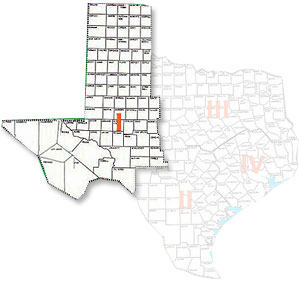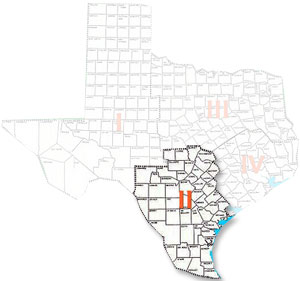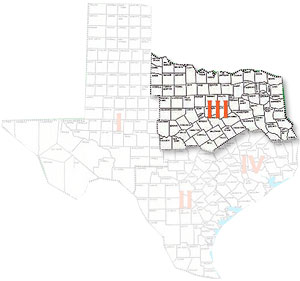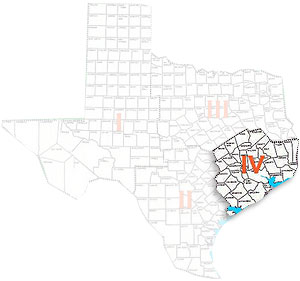Geosciences Employment Opportunities
AGI Estimated Number of Geoscientists in U.S.
(includes: Geologists, Geophysicists, Geochemists, Geomorphologists, Paleontologists, etc.)
| Employed in Geosciences Field | Percent | No. of Personnel |
| Oil and Gas Industry | 40% | 50,000 |
| Environmental Industry: | 30% | 37,500 |
Industry & Consulting |
60% |
|
Academics |
30% |
|
Regulatory |
10% |
|
| Minerals and Mining Industry | 15% | 18,750 |
| Meteorology (Climatology, etc.) Field | 10% | 12,500 |
| Oceanic and Astronomical Field | 5% | 6,250 |
| Total Employed in Geosciences Field: | 125,000 | |
Updated: March 8, 2018
Where is Your Place in the Field of Geology?
As a recent graduate or a seasoned geoscientist with many years of experience (i.e., geologist, geophysicist , geochemist, hydrogeologist, etc.), you may need to find new employment one day. You were likely equipped with a good education in the geological and earth sciences during your college days. Because the industrial profession within the geosciences is directly related to the prevailing local, national and world economics, the commodities that drive many of your company’s activities experience cyclical rises and falls, some with some short-term, some with long-term cycles that impact your employment. Your education, however, has equipped you to survive such cycles in a variety of ways and within a range of companies from commercial to non-profit groups. When confronted with such change, you must maintain your perspective and set about on a path to new endeavors within the geosciences and even in related activities, such as within colleges and universities, and within federal and state governments. See table above and the information presented below.
The Earth: One Place in the Universe
To help establish your new perspective, we have included two videos to remind you where you are in the universe.
Afterward you will be ready to re-tool your approach by developing new ways to look at your potential contributions in Texas, the U.S., or even elsewhere in the world that may be calling you to action.
So You Want to be a Professional Geoscientist?
If you are a college student thinking about majoring in one of the physical sciences, geology (or earth sciences or geosciences) would be an exciting profession. So you want to know about the Earth? Planetary geology, alternatively known as astrogeology or exogeology, is also a growing profession as off-world activities are now being contemplated. Planetary geoscience is concerned with the geology of the celestial bodies such as the planets and their moons, asteroids, comets, and meteorites. You might also check out the following career pathways from the Geological Society of London, the oldest geological society in the world (here).
Whether your choice is one of the subfields in geology or geotechnical engineering, or meteorology, your professional career in the geosciences could be a rewarding one. For more, see (here). Experienced mentors in the field are an indispensable source of information and guidance for every young geologist. All you have to do is ask!
As soon as you graduate, take the basic first test required to get your Texas professional license a few years later. The subject matter covered in the first test comes from your college geological education. After 5 years, you will be able to take the second test that requires field experience.
For research in the geosciences:
AGI just published the results of a recent survey (more).
AGI also helps to supply the geoscience workforce (more).
GSA helps as well (more).
Unemployed & Out of Work?
All oil and gas geologists in Texas and elsewhere know well that oil and gas employment is cyclical via a historical 20-year cycle of boom and bust. The cycle has been interrupted this time by new geological advances in identifying new reservoirs, followed by new technology… horizontal fracking of reservoirs producing natural gas and oil with great success. But with success comes over supply and lower prices… less profit and the need to cut costs …. e.g., geological and engineering services and geological staff levels. This is not only true for oil and gas, but also for other commodities, in the mining industry for example. Oversupply and low prices are dragging down employment in Australia as well (more, see page 37). This is “normal” Capitalism, but once again to the detriment of geologists being good at what they do… find and develop natural resources. You may choose to wait out the low prices and practice in your profession (and industry) while you wait for improvements in both oil and gas, and in the mining industry, in the U.S. and worldwide.
But if you have been an oil and gas geologist or geophysicist until you were laid off recently, you probably need to think about changing your industry, but not necessarily your field of interest and training. There are many articles on various careers, mostly written by recruiters, whose business it is to find jobs for qualified, experienced men and women. The I2M Web Portal now includes such articles under the category “Education” (more), among 209 other topical categories of interest to geoscientists (more).
The AIPG-TX management group is currently evaluating ways to assist recently unemployed geoscientists (geologists and geophysicists) through job referrals, training programs, and counseling. During the last oil and gas market decline of the 1980s to mid-1990s, the Institute of Environmental Technology was formed in Houston, Texas by a number of senior environmental professionals to provide training to unemployed oil and gas professionals via a 4-month “bootcamp” program for entering the environmental field.
Over a 4-year period, about 400 people graduated from the four-month program. More than half landed jobs in the industry, state and local government, and many of whom returned to the oil and gas industry after conditions improved with an even stronger resume than before. The IET personnel are currently reviewing conditions to determine if some form of the original IET program should be resumed. For further information on the past IET program, see (here).
Larger Economics: Capitalism vs. ?
A View on Why the Prices of Oil and Gas have Declined
Careers at the World Bank (more)
Other Information
Geoscience Currents are data snapshots related to the geoscience profession. Produced by the AGI Workforce Program, either internally or in cooperation with other departments and organizations, the Currents allow for quick release of timely data. All Currents are archived on this site, or you can subscribe and have them emailed to you as soon as a new Current is released. For more, see (here).
To work in the environmental industry in Texas, you will need to get your Texas Professional License, which will require you to pass the ASBOG tests (two of them), see (here).
For those of you who are already geoscientists, and have your Texas professional license, the following employers want you…
Present Openings
Google Search Results on "Jobs for Geologists": (more).
AIPG Job Board, click (here).
I2M Web Portal Search Results on "Employment": (here)
Jobs in the Space industry requires geologists (here)
The Space Industry Jobs Board and CV Creator (here)
For Additional Employment Opportunities, see:
- The Houston Geological Society
- AAPG: Low-Cost, and Open Access Data and Software for Petroleum Exploration and Production
AAPG: Getting Started as a Self-Employed Geoscientist - Geology.com
- Environmental & Geological Yellow Pages
- JobsOnline.com
- Federal Jobs Digest
- The Bureau of Economic Geology
- ESI – Environment Specialists
- ERM – Environmental Projects
Getting a Job
Resumes, Networking, and Interviewing (here).
Employment Interviews
What to consider before an interview (here). A perception from the UK.
Questions to prepare for before a job interview (here).
Requirements for Geological Services in Texas, Local Statutes, & National Guidelines
Geological services or the services of a qualified, professional geologist are specifically called for in a number of local and state Texas statutes, rules, and technical guidelines. Note on the guidelines below: See the AIPG-TX's News, including the Wise Reports (more), Texas Commission of Environmental Quality (TCEQ), Texas Railroad Commission (TRC), and other state and county regulations for updates to the guidelines below.
Examples of these guidelines (some of which may have been revised) are summarized below:
- The TCEQ technical guidance on Pressure Cementing of Public Water Supply Wells:
Affects TCEQ Rule 30TAC290.41(c)(3)(C). Check for updates. Exceptions to certain public supply well casing cementing rules will not be granted until a Hydrogeologist has made a detailed evaluation of the geologic framework of the well site, in support of such an exception request. (NOTE: hydrogeology is the branch of geology which deals with water within the earth – groundwater – and is the major area of practice for many geologists practicing in the environmental field, i.e., environmental site assessments involving potential contamination and in developing groundwater resources in Texas). - Hays County Subdivision and Development Regulations – Water Availability Study:
Article III, Section 3.12 of these Hays County regulations require that, as part of the platting process for certain subdivisions that will be dependent on ground water, a Water Availability Study be conducted. This study is to identify the quality and quantity of ground water available for the tract and its long-term sustainability. The study is predominantly geologic and hydrogeologic in scope. The rules require the study be performed by a State of Texas Registered Professional Engineer or Hydrogeologist. - TCEQ Rule 30TAC230 – Ground-Water Availability Certification for Platting:
Statewide rules for non-PGMA counties (only 15 PGMA counties in State) which require groundwater availability certification as part of their platting process. Scope of required work is substantially geologic or hydrogeologic in nature (characterizations of stratigraphy, lithology & geologic structure; lithologic and geophysical logging of wells; performance and analyses of pumping tests to determine aquifer characteristics; calculation of temporal and spatial effects of pumping). Current rule language states that the certification must be made by, and only by, a Texas Licensed Professional Engineer. This language precludes those professionals performing these types of groundwater investigations who have traditionally been the dominant practitioners in this area – namely the geologists and hydrogeologists. Enactment of a Geologists Licensure Act has corrected this inequity and allows the many otherwise qualified professional geologists and hydrogeologists to conduct these studies and make the appropriate certifications. - Texas Water Code, Chapter 35 – Groundwater Studies:
One of the steps in the preparation of a Priority Groundwater Management Area establishment report is an appraisal of the area's hydrogeologic framework. This report is prepared by TWDB staff, unless contracted out to a geologic or hydrogeologic consultant. - Blanco County Subdivision Ordinance – Water Availability Regulations:
Similar in scope and purpose to the Hays County regulations cited above (Example No. 2). Study is substantially geologic and hydrogeologic in nature. Ordinance requires Water Availability study be performed and certified by a qualified expert, which is defined in the Ordinance as an engineer registered to practice in the State of Texas. Enactment of a Geologist Licensure Act in Texas has allowed this Ordinance to be amended to include geologists and hydrogeologists, who are the dominant practitioners in the area of groundwater resource identification and evaluation in Texas. - Cow Creek Groundwater Conservation District (Kendall County) – Water Availability Report:
Similar in scope and purpose to the Hays and Blanco Counties regulations cited above (Examples Nos. 2 and 5). Study is substantially geologic and hydrogeologic in nature. Ordinance requires Water Availability report be prepared by a State of Texas Registered Professional Engineer or a Professional Hydrogeologist. The only national certifying programs are those of the AIPG (Certified Professional Geologist), the NGWA's Association of Ground-Water Scientists and Engineers (Certified Ground-Water Professional), and the American Institute of Hydrologists, which certifies hydrologists (for surface water) and hydrogeologists (for groundwater). - Barton Springs/Edwards Aquifer Conservation District (Hays and Travis Counties):
The District generally requires that a Hydrogeologic Study be performed to support permit applications and major permit amendments for permitted wells in the District's jurisdiction . The scope and purpose of these studies are predominantly geologic and hydrogeologic in nature. The technical guidelines for conducting these studies state that they must include geologic and hydrostratigraphic descriptions of the well site and surrounding area, prepared by a professional geologist. - TCEQ's Edwards Aquifer Rules (30TAC213) – Geologic Assessments:
For certain types of development on the Edwards Aquifer Recharge, Transition, and Contributing Zones, the TCEQ requires that a Water Pollution Abatement Plan (WPAP) be submitted to the agency. The WPAP details the steps that will be taken during and post development to protect the aquifer from the effects of development. One of the components of Recharge Zone WPAPs is a Geologic Assessment (GA). The scope and purpose of the GA is entirely geologic in nature and includes: mapping of the surface geology, description of the stratigraphy beneath the site, identification of geologic structures, and identification and description of aquifer recharge features (caves, sinkholes, fracture zones, etc.). The GA must be prepared by a Geologist, which the TCEQ defines as :
A person who has a received a baccalaureate or postgraduate degree in the natural science of geology from an accredited university and has training and experience in groundwater hydrology and related fields, or has demonstrated such qualifications by registration or licensing by a state, professional certification, or has completed accredited university programs that enable that individual to make sound professional judgments regarding the identification of sensitive features located in the recharge or transition zone.
- TRC Rules on the Surface Mining Permit Applications (16TAC12.126, 127, 128, and 137):
Information on environmental resources to be submitted with a permit application must include: a description of the geology, hydrology and hydrogeology; information on… geology related to hydrology; areal and structural geology of the permit area and adjacent areas and other geologic parameters which influence the required reclamation; the lithology and thickness of the aquifers. Rule 12.137(b) states that Maps, plans, and cross sections included in a permit application which are required by this section shall be prepared by or under the direction of and certified by a qualified registered professional engineer or professional geologist. - TRC Rules on the Underground Mining Permit Applications (16TAC12.172, 173, 174, and 183):
Contains very similar language regarding the submittal of geologic information with a permit application as cited above in Item 10 for Surface Mining Permit Applications. Rule 12.183(b) states that Maps, plans, and cross sections included in a permit application which are required by this section shall be prepared by or under the direction of and certified by a qualified registered professional engineer or professional geologist. - TCEQ Rules on Location Standards for Hazardous Waste Storage, Processing, or Disposal (30TAC335.204):
In determining the suitability of sites for the management of hazardous wastes (treatment facilities, impoundments, landfills, etc.), the geologic and hydrogeologic characteristics of the proposed site must be carefully and fully determined. This rule and the supporting technical guidance call for a variety of tasks that are predominantly geologic in nature. For example, active geologic processes in the vicinity of the site must be well characterized . In addition, regarding the location of a site with respect to geologic faults, the presence, and if a fault is found to be present, the width and location of the actual or inferred surface expression of a fault, including both the identified zone of deformation and the combined uncertainties in locating a fault trace, must be determined by a qualified geologist or geotechnical engineer. , which has been amended to require professional geologists or hydrogeologists. - TCEQ Rules for Public Water Systems (30TAC290.38 – 47):
The extent of treatment or proposed changes in the extent of treatment of public water supply obtained from ground water (wells, springs) is to be determined based on several factors, including… geological data. . - TCEQ Rules on Locations for Municipal Solid Waste Landfills (30TAC330):
Applications submitted for the operation of sites located within areas that may be subject to differential subsidence or active geological faulting shall include detailed fault studies. Such studies shall be conducted under the direct supervision of a professional engineer experienced in geotechnical engineering or a geologist qualified to evaluate such conditions. . - TCEQ Municipal Solid Waste Landfill Site Soil and Liner Evaluation Report (TCEQ Form 0674):
The instructions on completing this form state that the form is to be completed by a qualified independent third-party professional engineer experienced in geotechnical engineering and soils testing or a graduate geologist whose education and/or experience is in engineering geology and geotechnical soils testing. The Professional of Record (POR; engineer or geologist) who prepares the report must also sign off on the report. - TCEQ Risk Reduction Rules (30TAC350):
The rules govern a program for identifying and quantifying the extent of hazardous contamination in environmental media (soils, bedrock, ground water) and determining the need for and scope of remedial action. Much of this program depends on the accurate characterization of the geologic and hydrogeologic framework beneath and in the vicinity of the impacted site (350.51). Such characterization is critical to the remedial action decision-making process. The rules do not yet define the qualifications of professionals who can conduct the required geologic and hydrogeologic characterizations but certainly implies them. - Texas Water Code, Chapter 27 – Injection Well Act:
This Act governs the siting, permitting, design, construction, and operation of wells in Texas used for the subsurface disposal (injection) of a variety of hazardous and non-hazardous liquid wastes. It also governs wells used for extraction of certain minerals (sulfur, uranium, etc.). The purpose of this Chapter is to ensure protection of human health, the environment (particularly ground-water resources), and oil and gas resources. Depending on the type and use of an injection well, it is under the jurisdiction of either the TCEQ or the Texas Railroad Commission, and these agencies have developed their specific rules, including geologic and hydrogeologic characterizations, in compliance with TWC Chapter 27. A key element in the safe siting and design of injection wells is a thorough understanding of the surrounding geologic and hydrogeologic framework. This task is specifically called for in 27.051(f), 27.053, and 27.056(1). - Texas Water Code, Chapter 28 – Water Wells and Drilled or Mined Shafts:
Certain activities governed by the Water Code, under rules promulgated by either the TCEQ or the Railroad Commission, require the performance of specific geologic tasks (e.g.: 28.033, 28.034, 28.037). - TCEQ's Corrective Action Project Manager Registration Rule (30TAC334.457):
Professionals who are responsible for remediation of environmental impact resulting from leakage or spills from Underground or Aboveground Storage Tanks (UST, AST) are required to be registered by the TCEQ. Qualifications for registration include education, experience, and successful passage of an examination. Qualification criteria include a demonstration of experience in and knowledge of the geologic and hydrogeologic skills necessary to safely and effectively manage corrective action at impacted UST/AST sites, which implies a professional with either a geologic or a geotechnical engineering background. - American Society of Testing & Materials: Phase II Environmental Site Assessments:
This guideline indicates that an environmental professional must understand subsurface conditions and have a geological background to conduct such investigations. Check the ASTM for updates.
In The News
Sponsors of the AIPG-TX GEODAYZ Training Program
2022
2018



























